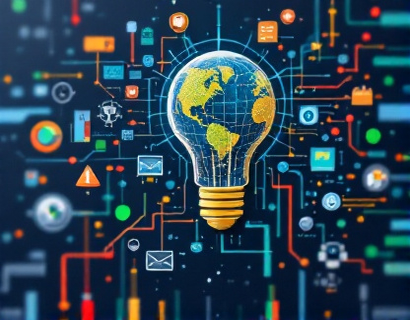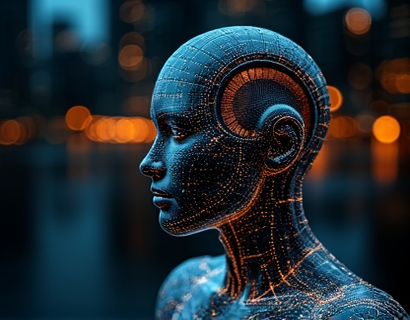Empowering Young Minds: The Role of AI-Powered Educational Chatbots in Safe and Engaging Learning
The integration of artificial intelligence in education has opened new avenues for interactive and personalized learning experiences. Among these innovations, AI-powered educational chatbots stand out as a transformative tool, especially for students and children seeking specialized knowledge in various workshops and industries. This article delves into how these chatbots provide verified and safe access to specialized workshop knowledge, enhancing the educational journey of young learners.
Understanding AI-Powered Educational Chatbots
AI-powered educational chatbots are sophisticated software applications designed to simulate conversation with human users through text or voice interactions. These chatbots leverage natural language processing (NLP) and machine learning algorithms to understand and respond to user queries accurately and contextually. In the realm of education, these chatbots serve as virtual mentors, guiding students through complex topics, providing instant feedback, and facilitating access to a wealth of specialized knowledge.
Ensuring Safety and Verification
A critical aspect of deploying AI chatbots in educational settings is ensuring the safety and integrity of the information provided. Educational platforms utilizing these chatbots implement rigorous content verification processes to guarantee that the data shared is accurate, up-to-date, and appropriate for the intended audience. This involves collaborating with subject matter experts to review and approve content, as well as employing advanced algorithms to filter out any potentially harmful or misleading information.
Specialized Workshop Knowledge for Students
One of the primary benefits of AI-powered educational chatbots is their ability to offer specialized knowledge from various workshops and industries. These chatbots can provide detailed insights into specific workshops, helping students make informed decisions about their educational and career paths. For instance, a student interested in robotics can engage with the chatbot to learn about different robotics workshops, their curricula, and the skills they can acquire. The chatbot can also offer recommendations based on the student's interests and previous interactions, creating a personalized learning experience.
Enhancing Learning Through Interactive Conversations
The interactive nature of AI chatbots makes them an excellent tool for enhancing learning. Unlike traditional educational resources, chatbots can engage students in real-time conversations, answering questions, clarifying doubts, and providing additional resources as needed. This dynamic interaction not only makes learning more engaging but also helps in reinforcing concepts through repeated exposure and discussion. For example, a student asking about the principles of renewable energy can receive step-by-step explanations, examples, and even interactive simulations to better understand the topic.
Child-Friendly Interfaces and Content
Recognizing the unique needs of younger learners, AI educational chatbots are designed with child-friendly interfaces and content. These chatbots use simple language, visual aids, and interactive elements to make complex subjects accessible and enjoyable for children. The interfaces are intuitive, with clear navigation and age-appropriate design, ensuring that even young children can use the platform independently. Content is carefully curated to be both educational and entertaining, maintaining the interest of young users while providing valuable learning opportunities.
Building Trust Through Transparency
Building trust is essential in any educational tool, and AI chatbots are no exception. Transparency in how the chatbot operates and the sources of its information is crucial. Educational platforms achieve this by clearly communicating the chatbot's capabilities, limitations, and the verification processes in place. Users, especially parents and educators, can have confidence in the information provided, knowing it has been vetted and is reliable. This transparency also helps in addressing any concerns about data privacy and security, which are paramount in educational settings.
Facilitating Industry Insights
Beyond general educational content, AI chatbots can offer valuable insights into specific industries, helping students understand the practical applications of what they learn. For instance, a chatbot can provide information about the latest trends in technology, the skills required in the healthcare sector, or the opportunities in environmental conservation. By connecting theoretical knowledge with real-world applications, these chatbots help students see the relevance of their studies and inspire them to pursue careers in these fields.
Supporting Personalized Learning Journeys
One of the most significant advantages of AI chatbots in education is their ability to support personalized learning. Each student has unique learning needs, pace, and interests. AI chatbots can adapt to these individual differences by tailoring their responses and recommendations based on user interactions. For example, if a student shows a strong interest in a particular topic, the chatbot can provide more in-depth resources and related activities to deepen their understanding. Conversely, if a student is struggling with a concept, the chatbot can offer additional explanations and practice exercises to reinforce learning.
Promoting Collaborative Learning
AI chatbots can also foster a sense of community and collaboration among students. By facilitating group discussions, study sessions, and project collaborations, these chatbots help create a supportive learning environment. Students can ask questions, share resources, and learn from each other, all mediated by the chatbot. This collaborative approach not only enhances learning but also develops important social skills such as communication, teamwork, and empathy.
Addressing Common Concerns
Despite the numerous benefits, there are common concerns regarding the use of AI chatbots in education. One major concern is the potential for over-reliance on technology, which could hinder the development of critical thinking and problem-solving skills. However, when used complementarily to traditional learning methods, chatbots can enhance rather than replace human interaction and teaching. Another concern is the digital divide, where not all students have equal access to the technology required to use chatbots. Educational institutions and policymakers must work to bridge this gap to ensure equitable access to these innovative tools.
Future Prospects and Innovations
The future of AI-powered educational chatbots is promising, with ongoing advancements in AI technology poised to further enhance their capabilities. Future developments may include more sophisticated natural language understanding, emotional intelligence, and the ability to integrate with virtual and augmented reality environments. These advancements will make learning experiences even more immersive and personalized, opening new frontiers in educational technology.
Conclusion
AI-powered educational chatbots represent a significant step forward in providing safe, verified, and engaging learning experiences for students and children. By offering specialized knowledge from workshops and industries, these chatbots empower young minds to explore and excel in their areas of interest. With a focus on user-friendly interfaces, content verification, and personalized learning, these tools are shaping the future of education, making it more accessible, interactive, and effective. As technology continues to evolve, the potential for AI chatbots in education will only grow, promising a brighter and more informed future for all learners.









































